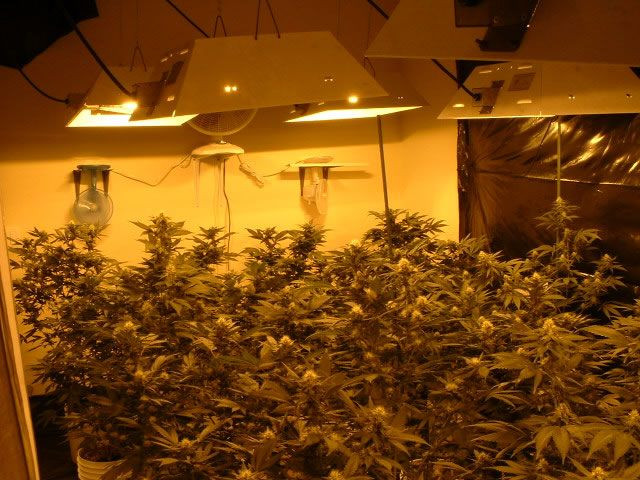Andrea Sanderlin, Wealthy Suburban Mom, Busted For 'Sophisticated' Million-Dollar Marijuana Operation In NYC, Shows Legalization Could Be Big Business

Andrea Sanderlin, a mother of two from the wealthy New York suburb of Scarsdale, allegedly grew nearly 3,000 marijuana plants using state-of-the-art equipment stored in a Queens industrial warehouse. She was the head of a multi-million dollar illicit drug operation.
"Agents discovered two separate rooms constructed within the warehouse designed to grow marijuana," said DEA Special Agent David Lee. "Each room contained state of the art lighting, irrigation and ventilation systems to facilitate growing the marijuana."
A series of clues led federal officials to Sanderlin's operation. First, her electricity bill showed "unusually high usage," amounting to about $9,000 a month. Surveillance teams then watched Sanderlin drive to and from Queens for several weeks to her "job" at the warehouse. Finally, authorities were tipped off by a confidential informant who told agents that Sanderlin was growing the marijuana and told them where to find it.
On May 20, Sanderlin was stopped in her Mercedes SUV by police who brought her to the Queens warehouse where they found 1,000 plants growing under artificial sunlight and about 2,000 plants that had been harvested or were being dried for distribution.
The scope and success of what would probably be considered a small business brings to the forefront what many states have already considered: if legalized and taxed, the sale of marijuana could bring big revenue to the state. Sanderlin made approximately $3 million from her illicit drug business in a small warehouse in Queens. Imagine how lucrative her business would have been if she was incorporated and had access to warehouses across the state. The tax revenue from those marijuana sales could have been enough to increase school funding or provide financial assistance to those in need.
New York, which boasts progressive legislation on everything from gay marriage to public nudity, has not yet taken a stance on medical marijuana. Currently, 18 states and Washington, DC have legalized medical marijuana.
In a piece for The Huffington Post entitled "Why the New York Senate Must Pass a Medical Marijuana Bill Now," Jean Weinberg, COO of Gay Men's Health Crisis, wrote very candidly about her struggle with breast cancer and how debilitating pain during her battle for survival could have been eased by medical marijuana.
"The trend is quite clear," wrote Weinberg. "States are recognizing that there is a real benefit to medical marijuana in the treatment of well over 20 diseases or symptoms. New York State should be a leader in health care and not a follower. In this case we are already behind the curve. What will it take to convince legislators to catch up?"
And if New York really wanted to push the envelope, legislators could follow the lead of Colorado, which became the first state to regulate recreational marijuana last month.
The DEA did not report for what purposes Sanderlin's customers used the marijuana, though it is a well-known fact that many people smoke marijuana just for fun.
"In 2011, marijuana was the most commonly used illicit drug, with 18.1 million current users," according to the National Survery on Drug Use and Health. "It was used by 80.5 percent of current illicit drug users."
As Colorado is about to find out, pumping revenue from marijuana users back into the state could be hugely beneficial, rather than letting everyday people like Andrea Sanderlan reap the financial benefits illegally. But for now, Sanderlin has been arraigned on charges of narcotics trafficking and has been sent to Metropolitan Detention Center in Brooklyn with no possibility of bail.
Published by Medicaldaily.com



























